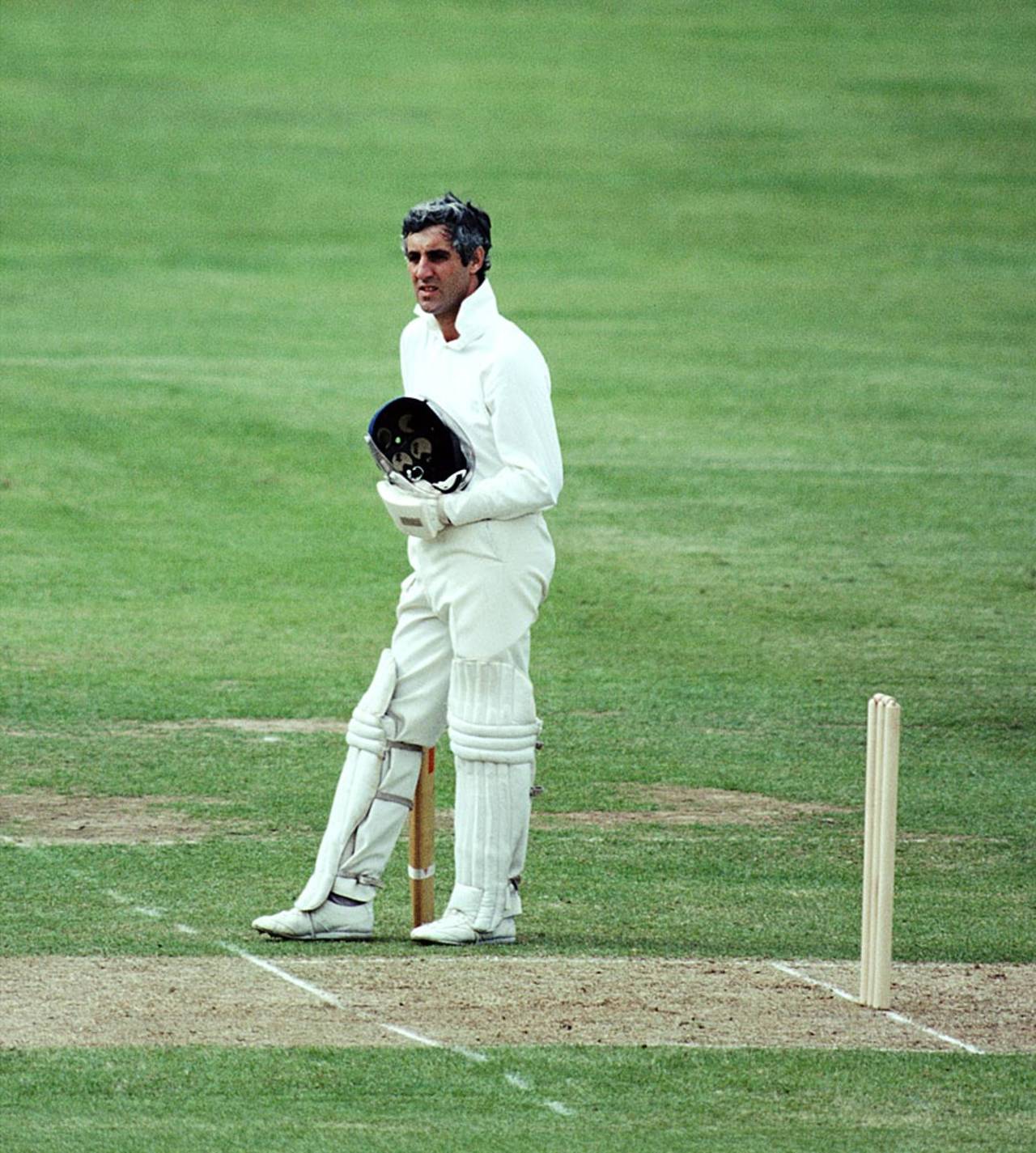Mike Brearley once gave a lovely description of the feeling of being out of form: "We try to focus on all sorts of things that should be unconscious," he said. "Like the centipede, who, trying to think about each leg before it moves, ends up on its back in a ditch."
In a life of outstanding and understated achievement, batting for England was the one arena in which Brearley encountered monotonous failure: 33 matches, 66 innings, 1442 runs at an average of 22.88, nine fifties, and a strike rate of 29.79. In almost half of those innings he was out for less than 20; he never made back-to-back half-centuries. To paraphrase the old song, if it wasn't for bad form, he'd have had no form at all.
It's one of the more remarkable aspects of his captaincy, and one of the least discussed. Even with his great rationality, his natural understanding of where cricket fit into a rounded life, it must have been sobering to know that his batting was falling short, to accept that, however brilliantly he enabled others, a more personal triumph would never be his. I don't pretend to understand him, but I would guess that it was only Brearley's deep sense of perspective that kept the hurt at bay.
His early career suggested something else. Initially a wicketkeeper-batsman, he made both a triple and a double-hundred on the MCC Under-25 tour to Pakistan in 1966-67. By then he was living the kind of life that has vanished forever: for seven years, as undergraduate and post-graduate, he played for Oxford University, joining Middlesex once summer term was over.
He wasn't selected for England until he was 34 years old, and it added to his mystery. When he became captain soon afterwards, he looked like some kind of sage, already greying, but nobly so; a jaunty, bright-eyed figure who was constantly surprising, whether emerging to bat with a pink skullcap beneath his England one (its strange ear-pieces adding an eccentric, home-made air to the innovation), or by placing every fielder, including the wicketkeeper, on the boundary for the final ball of a limited-overs game in Australia.
He had already retired once when 1981 and the Test matches that would ensure his legend came along. His reappointment felt like balm on burned skin. It was not just the logical course of action, it was the only thing that would work. His form was irrelevant.
It is a long time ago now, and aside from the myriad changes of an evolving culture, Brearley would be a less mysterious figure now. We would know more about him, and perhaps that scrutiny would have undermined his authority in the public arena. That is where England captains first lose their grip, as Cook is discovering.
In an era that is performance-driven and so completely analysed, it is harder to weigh less quantifiable contributions like Mike Brearley's (beyond, of course, the ultimate measure - the team kept winning).
He made people believe that they would succeed by making clear his belief in them. He didn't pretend to know the answer to everything, because cricket's challenge is not binary. One of his most-heard phrases was, "Well you never know, the alternative may have been worse." Brearley was about understanding the shades of the colours of the spectrum.
No captain is universally loved. At Middlesex the iconoclast spinner Phil Edmonds was said to walk backwards to his mark in case Brearley changed the field while he wasn't looking (but then anyone who remembers the brevity of the Edmonds approach to the crease might find this story somewhat unlikely), and in his autobiography Fred Titmus was similarly enraged with Brearley's, "daft and arrogant ideas that made him something of a joke".
Titmus concluded his rebuke by noting that Brearley's Test match batting average was much the same as his own. That is the obvious argument of the dressing-room pragmatist. The greatness of Brearley's captaincy was that it never really became an issue beyond the personal. Alastair Cook, for all of his runs, may ponder what form such magic takes.
Jon Hotten blogs here and tweets here
